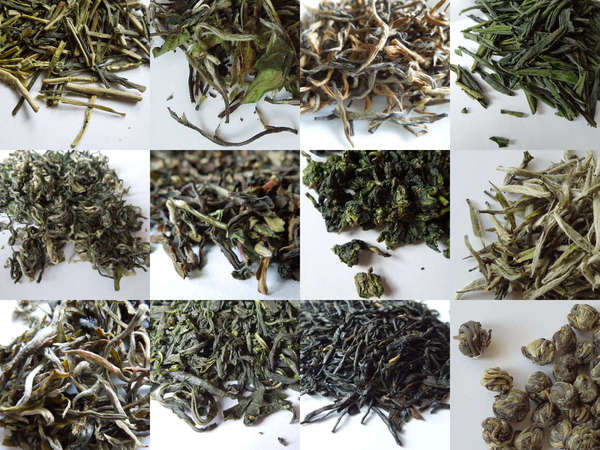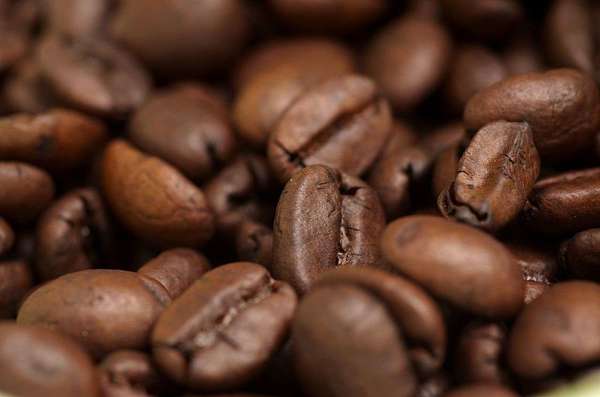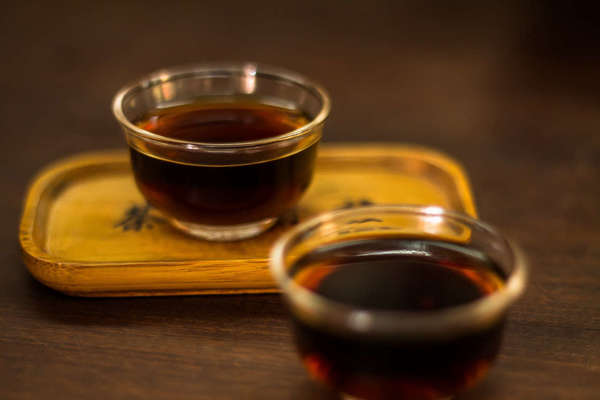Switching From Coffee to Tea
Last Updated: Jan. 6, 2017
Why switch from coffee to tea?
We give five compelling reasons for making the switch: caffeine, acidity, cost, variety, and other health benefits.1. Caffeine: The main reason for switching from coffee to tea is the caffeine content: coffee is much higher in caffeine than tea. High doses of caffeine are known to cause a number of adverse effects, including anxiety, insomnia, and other chronic problems that influence both physical and psychological health.[1]
Caffeine can cause physical dependency and withdrawal when stopped. One can easily drink 2-3 times as many cups of tea as coffee while maintaining a similar caffeine intake. Withdrawal symptoms are much milder for tea drinkers relative to people who consume similar volumes of coffee. Our article on the caffeine content of tea explains more about which teas contain more or less caffeine.
2. Acidity and effects on the digestive tract: Tea is also considerably less acidic than coffee, although the acidity of tea varies widely from one tea to the next, and also depends on how the tea is brewed. The greater acidity of coffee can lead to an upset stomach, especially when people drink strong coffee on an empty stomach. People who find that coffee causes gastrointestinal problems may find that tea offers a milder alternative.
3. Cost: The price of both tea and coffee are widely variable. However, as a general trend, tea tends to be much less expensive per cup than coffee. Specialty coffee often runs about $10-15 a pound, which yields about 32 8-oz cups, yielding a price of 31-47 cents per cup. By contrast, 4 ounces or less of tea is needed to brew a similar number of cups. There are many outstanding teas which are available for a cost-per-cup of much lower, such as 10-20 cents, and some loose-leaf teas cost less than 5 cents per cup. When making multiple infusions of your tea, the price can be even lower, even for teas with a higher price-per-pound.
 The amount of variety available in even pure (unflavored) teas made only from the tea plant, can be astonishing, both in terms of the visual appearance, and the flavor and aroma of the brewed cup.
The amount of variety available in even pure (unflavored) teas made only from the tea plant, can be astonishing, both in terms of the visual appearance, and the flavor and aroma of the brewed cup.Similarly, the broad categories of tea such as green tea, black tea, oolong tea, and others, provide a greater overall diversity of teas. Lastly, the aromas of tea are widely variable: even among pure (unflavored) teas, there are teas whose aromas resemble fruit, flowers, grass, earth, and various spices and herbs.
5. Additional benefits of tea: Tea also contains additional benefits over coffee in addition to its lower caffeine content. Tea contains L-theanine, a chemical which interacts with caffeine, allowing a smaller dose of caffeine to promote greater alertness. L-theanine also promotes relaxation. And although there is some evidence that both coffee and tea carry some health benefits, there has been more general evidence supporting the health benefits of tea.
Strong black teas for coffee lovers
Coffee is a powerful drink, strongly bitter, rich and full-bodied, and very aromatic. It is natural that many coffee lovers prefer strong black teas, especially those higher in tannins, which impart body to a tea.A few examples of single-origin black teas that tend to be on the strong side are Assam and Yunnan Dian Hong. There are also styles of blended black teas that exhibit this type of strength and full-bodied character, including English, Scottish, and Irish Breakfast, Ostfresian tea, and Russian Caravan.
Roasted teas with coffee-like aromas
The aroma of coffee comes primarily from the fact that the coffee beans are roasted. Roasted teas, accordingly, have aromas that are familiar to coffee lovers. Hojicha is a Japanese roasted green tea which, although its aroma is vaguely coffee-like, has a smooth, mild flavor and low caffeine content. There are also many roasted oolong teas, which tend to have a stronger flavor and more caffeine than hojicha, but still much less than coffee.Yerba mate and other coffee alternatives
For people who truly cannot get excited about tea, Yerba Mate is another good alternative to coffee. Although green yerba mate does not resemble coffee at all, roasted Yerba Mate has a coffee-like aroma, more so than tea. Yerba mate is naturally sweeter and milder flavored than most coffee, even when unsweetened. Although its health effects have not been studied as extensively as either tea or coffee, it seems to be a gentler drink than coffee and may be a good alternative for people who find coffee to be too harsh on the stomach. The caffeine content of Mate is greater than tea but less than coffee, and mate has other substances which tend to lead to a more mellow or relaxing experience when drinking it.There are also numerous caffeine-free herbal teas which can resemble coffee in flavor and aroma. Roasted chickory root is one plant that has traditionally been used to make a coffee substitute. Roasted grains, like barley, are often used in coffee substitutes, or consumed as an herbal tea on their own. Historically, the Kentucky coffee tree, an unrelated tree that does not contain caffeine, was used to make a coffee-like drink consumed by Native Americans and later by European settlers to the Americas.



